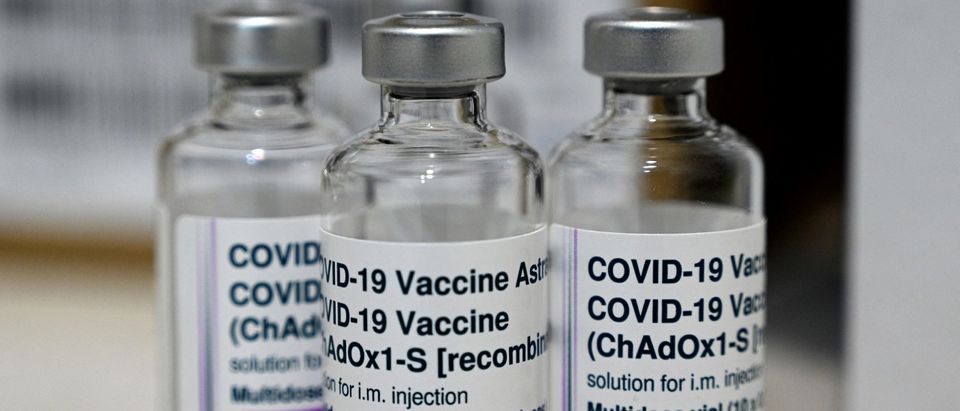Editor’s note: We endeavor to bring you the top voices on current events representing a range of perspectives. Below is a column arguing that vaccine mandates are necessary to end the pandemic. You can find a counterpoint here, where Job Creators Network Foundation President Elaine Parker argues that vaccine mandates will cause massive damage to small businesses.
When the highly transmissible delta variant of SARS-CoV-2 hit the United States in July, our levels of vaccination across the country were highly variable.
Places like California had just opened up (June 15, 2021) with a 55% full vaccination rate of eligible adults and others (like Missouri) had only one third of their eligible population at that time. These discrepancies in vaccination rates with the onset of delta across the country played out dramatically. Although cases rose throughout the country, the hospitalization to case ratio was much lower in states with high levels of vaccination, a function of the vaccines’ ongoing protection against severe disease.
In other countries with access to the vaccines, where vaccination rates quickly outstripped those in the United States, the delta variant did not lead to the flooding of hospitals like areas of low vaccination in the U.S. Indeed, although delta rose in many countries almost at the same time as the U.S. (and rose in the UK earlier), the high rates of vaccination in many regions have allowed full openings with only limited restrictions remaining (Denmark opened on September 10, 2021 with a 74% vaccination rate; Ireland to open on October 22 with an 81% vaccination rate; Chile opened for travel with an 87% vaccination rate; and the UK eased restrictions on July 19 with a 68% vaccination rate). In contrast, the U.S. had surges in cases that rivaled those during the winter 2020 surge, with hospitalizations rising concomitantly in cases in states of low vaccination.
The U.S. made vaccinations freely available to all eligible adults who wanted them on April 19, 2021, with expansion to 12-15 year old adolescents on May 10, 2021. A series of tactics to expand uptake were tried, including incentives, roll-outs at community pharmacies, free transportation, free child care, community-based messaging, and celebrity messaging but the US now has the lowest rate of vaccination among wealthy countries. On Sept. 9, in an attempt to increase the vaccination rate in the US, President Biden announced mandates for vaccination of health care workers, federal employees and employers with 100 or more employees.
Vaccine mandates in the U.S. are legal by a Supreme Court ruling from 1905. In Jacobson vs Massachusetts, the Court upheld the Board of Health’s authority in Cambridge, Massachusetts to require vaccination against smallpox during a smallpox epidemic. The law specified that such mandates, even when they infringe on personal liberties, could be invoked in the setting of a public health emergency.
Of note, while this case was the first known instance of mandating vaccinations in the U.S. for adults, the premise of the Supreme Court ruling was based on ongoing mandates for children to get vaccines to attend schools. School vaccination mandates had been challenged the year before, in a case called Viemeister v. White, but the ruling highlighted that claims of vaccines harms, when the majority of scientists disagree, cannot overrule a mandate. To this day, most schools mandate childhood vaccines for children to attend; some of these vaccines are for vaccine preventable illnesses that cause more severe disease in children (pertussis, rubella, mumps, measles, diphtheria, etc.) and others help protect adults. For instance, since the pneumococcal vaccine was approved for use in children, the number of older adults hospitalized for pneumococcal disease has decreased substantially.
In the case of COVID-19, the U.S. is truly in a public health emergency. The number of cases and hospitalizations we saw during the delta surge was tragically higher than most other wealthy countries where vaccinations have had less contention. The FDA must take vaccines through an extensive regulatory process before they are approved and the Pfizer vaccine has therefore been studied as safe, and approved for use in those 16 or up as of August 23, 2021. The emergency use authorization of the Moderna vaccine and Johnson and Johnson vaccine is still ongoing, with the approval process for the Moderna vaccine imminent.
The vaccines are safe and effective and are the only way to get through the epidemic phase of the virus and render it endemic. Indeed, the infringement on individual liberties from lockdowns and mandating masks allow a case to be made that vaccines will actually lead to greater freedom from public health restrictions. We should have a contingency for natural immunity (where immune passports are issued for either natural infection or vaccination, like so many places in Europe) to be exclusionary of the need for a mandated vaccine, although one dose is likely prudent even those with prior infection to mature T cells further.
In conclusion, I support the use of vaccine mandates in the U.S. to get our vaccination rates up (especially in light of the transmissible delta variant) so that we protect each other from COVID-19. The only path to a normal pre-pandemic life is through vaccination and the ongoing implications for a twilight state of partial COVID-19 restrictions are not based in a feeling of freedom. The best way to get to this freedom is to vaccinate more in the US and then settle down to endemicity. which means that it will eventually circulate at persistent, but low, rates through a region at levels which are manageable.
Monica Gandhi MD, MPH, is an Infectious Diseases physician and Professor of Medicine, UCSF


